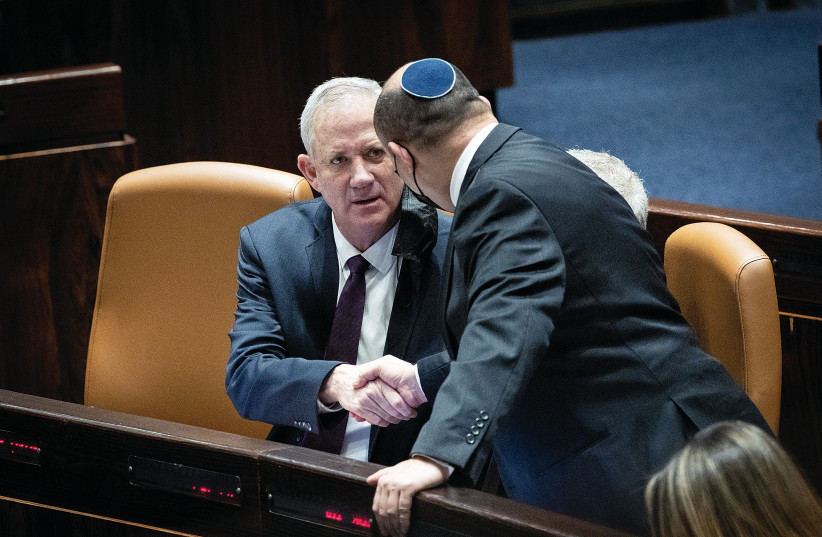For the first time in five years, the Israeli military will not enforce a closure on the West Bank and Gaza Strip for the Purim holiday.
“In accordance with a situational security assessment and the guidance of the political echelon, it was decided not to impose a general closure on the Judea and Samaria area and not to close the crossings in the Gaza Strip during the Purim holiday,” the IDF Spokesperson’s Unit said in a statement provided to The Jerusalem Post.
“The decision will be reviewed during the holiday in light of events and developments,” the statement added.
Security forces regularly step up their preparedness prior to the holidays, imposing closures on the West Bank and Gaza as there is often an uptick in tensions and violence.
Closures affect tens of thousands of Palestinians who work legally in Israel every day.

The decision not to impose a closure was taken following a discussion between the IDF, the Shin Bet (Israel Security Agency) and Israel Police, where they supported the recommendation due to a lack of warnings regarding possible terrorist attacks.
Defense Minister Benny Gantz accepted the recommendation.
Nevertheless, tensions have been rising in the West Bank and Jerusalem after several Palestinians were killed by Israeli security forces last week. These included 16-year-old Nader al-Rayyan, who was killed during a riot following an arrest raid in the Balata refugee camp near Nablus after he was hit by bullets in his head, chest and hand.
Another Palestinian, Muhammad al-Shaham in his 20s, was also killed in Kalandiya outside Jerusalem when he was hit in the head by a bullet in violent clashes with Israeli security forces during another arrest raid.
Palestinian Authority presidential spokesman Nabil Abu Rudaineh described the killings on Tuesday as “extrajudicial executions,” warning that “this escalation could lead to an explosion.”
PA Prime Minister Mohammad Shtayyeh said, “Since the beginning of the year, 20 Palestinians have been killed by the Israeli security forces. The US and the international community are not putting pressure on Israel to halt its crimes.”
On Wednesday, the leaders of Hamas and Palestinian Islamic Jihad called for escalating the fight against Israel, especially in the West Bank and Jerusalem, until “the liberation of Palestine.”
The appeal came during a meeting in Beirut between PIJ Secretary-General Ziyad al-Nakhaleh and Saleh al-Arouri, deputy head of the Hamas Politburo.
The terrorist groups said that they discussed the readiness of the armed groups in the Gaza Strip to defend al-Aqsa Mosque and the residents of east Jerusalem as they did during last year’s war between Israel and Hamas.
“The priority at this stage of national liberation requires working to unify the resistance forces and escalate the confrontation with the Israeli occupation and force it to retreat from all Palestinian soil,” the statement read.
With the tensions rising and ahead of the Jewish, Muslim and Christian holidays taking place in April, the administration of US President Joe Biden has been trying to maintain calm in the region.
According to a report by Axios, Prime Minister Naftali Bennett met with senior ministers and heads of the security establishment to discuss the upcoming holidays. While there is no concrete threat, they have acknowledged that any small incident could lead to a dangerous escalation.
Last Ramadan, Palestinians were banned from gathering near the Damascus Gate in Jerusalem’s Old City, leading to violent confrontations with police.
Tensions are already high from planned evictions of Palestinian families from the flashpoint neighborhood of Sheikh Jarrah. The situation later deteriorated to Hamas firing several missiles toward Jerusalem, sparking the 11-day Operation Guardian of the Walls in May.
Khaled Abu Toameh contributed to this report.
